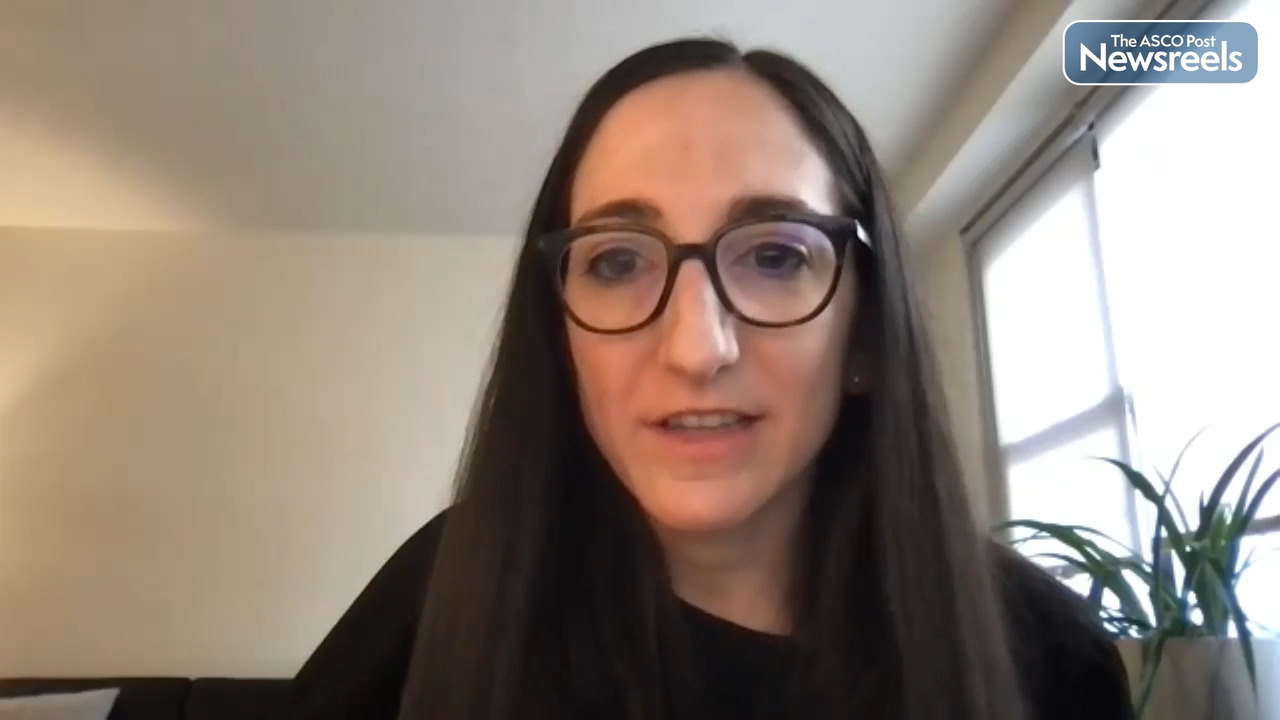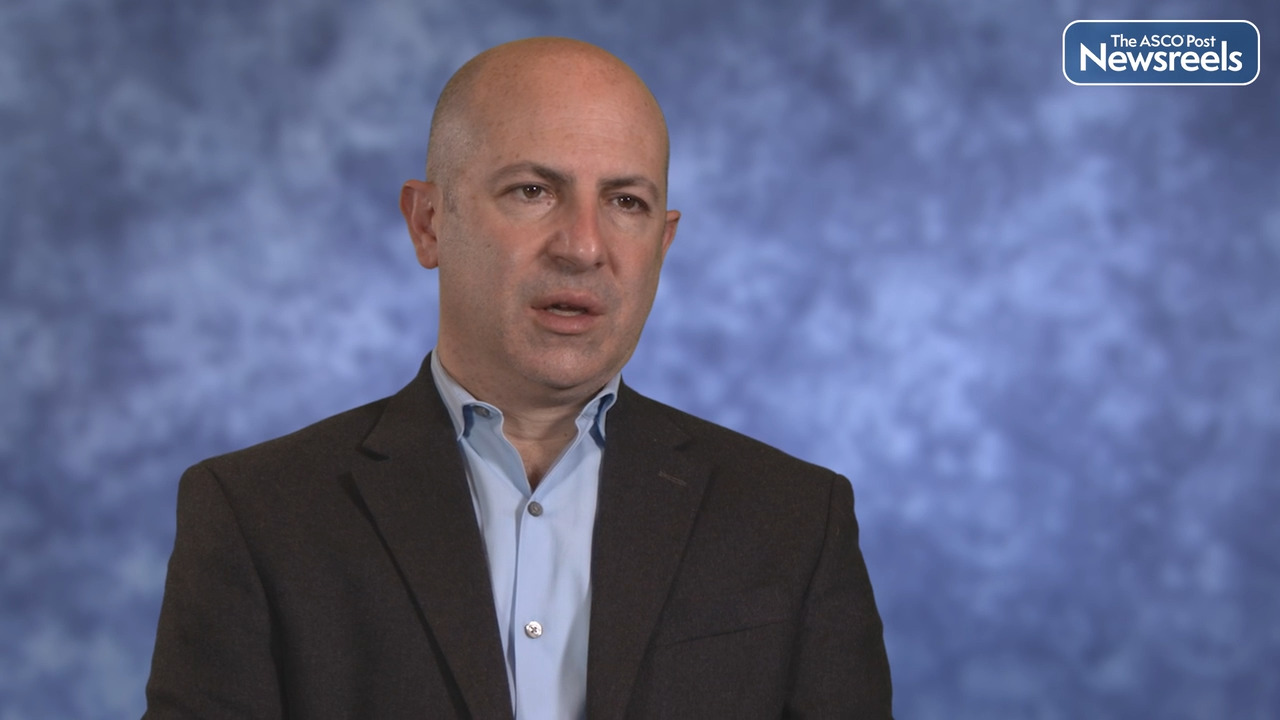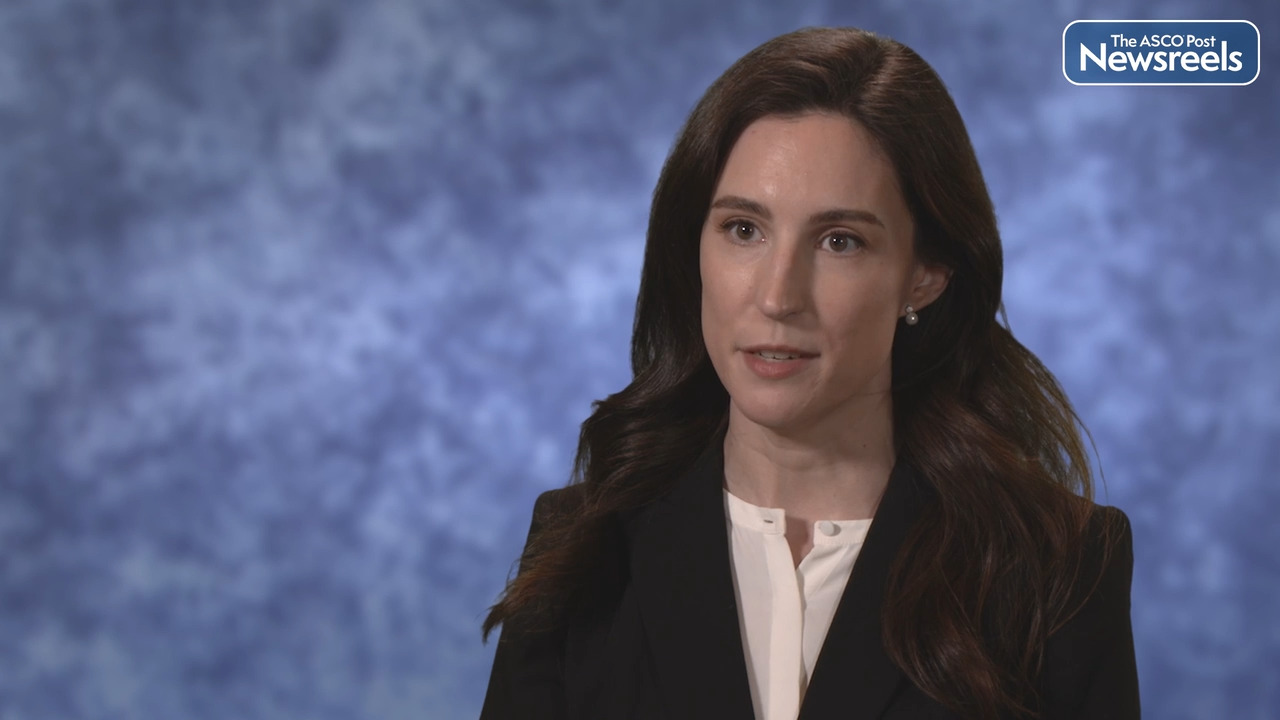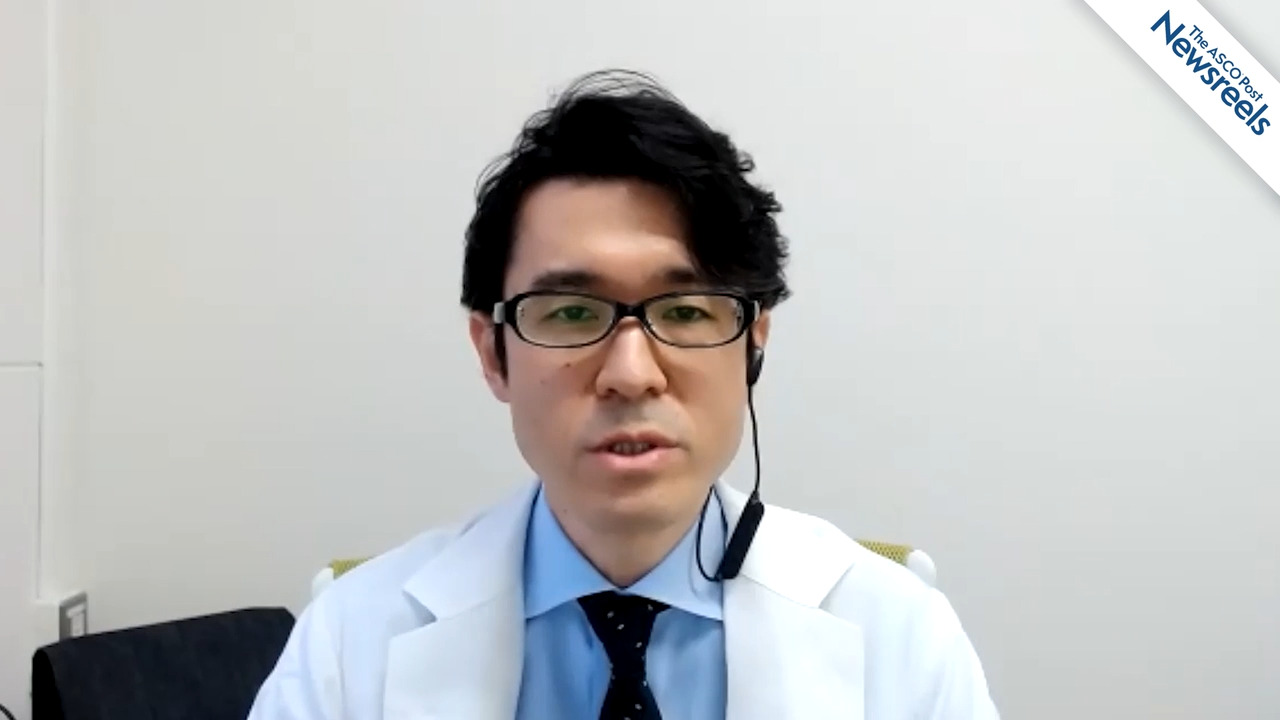Afsaneh Barzi, MD, PhD, on Colorectal Cancer: Early Data on Regorafenib and Pembrolizumab
2022 ASCO Gastrointestinal Cancers Symposium
Afsaneh Barzi, MD, PhD, of City of Hope Comprehensive Cancer Center and AccessHope, discusses results from a phase I/II study of regorafenib and pembrolizumab in refractory microsatellite-stable colorectal cancer. Although the trial did not meet its primary endpoint, the median overall survival is “provocative,” says Dr. Barzi. An analysis of biomarkers to identify patients with a longer duration of benefit is ongoing (Abstract 15).
The ASCO Post Staff
Melissa Amy Lumish, MD, of Memorial Sloan Kettering Cancer Center, discusses new findings showing a 100% complete response rate to PD-1 blockade alone among the first 11 patients with locally advanced mismatch repair–deficient rectal cancer treated with this approach. None of the patients required chemoradiation or surgery, thus avoiding their attendant morbidities, and so PD-1 blockade may represent a new treatment paradigm. Follow-up on the durability of response is needed (Abstract 16).
The ASCO Post Staff
Zev A. Wainberg, MD, of the University of California, Los Angeles, discusses an update, of 25 additional months, on phase III safety and efficacy results from the KEYNOTE-062 trial. This study compared pembrolizumab with or without chemotherapy vs chemotherapy alone for patients with PD-L1–positive advanced gastric or gastroesophageal junction adenocarcinoma (Abstract 243).
The ASCO Post Staff
Francesca Battaglin, MD, of USC Norris Comprehensive Cancer Center and the Keck School of Medicine, discusses findings from one of the largest studies to investigate recurrent neoantigens in upper gastrointestinal cancers. Dr. Battaglin and her team identified peptides with high human leukocyte antigen–binding affinity and an association with a positive tumor inflammation signature in both microsatellite-instable and microsite-stable tumors, suggesting a role for such antigens as potential cancer immunotherapy targets (Abstract 246).
The ASCO Post Staff
Yu Sunakawa, MD, PhD, of Japan’s St. Marianna University School of Medicine, discusses his findings from the DELIVER trial, which suggest the gut microbiome may predict skin toxicities in patients with advanced gastric cancer who are treated with nivolumab. In addition, some single nucleotide polymorphisms, such as NOTCH1, SEMA4D, NLRC5, and IL-6R genes, may potentially become markers for diarrhea and skin toxicities with this agent.
The ASCO Post Staff
Gabriel A. Brooks, MPH, MD, of the Norris Cotton Cancer Center, discusses key studies that, when synthesized, suggest the benefits of oxaliplatin may be less than often assumed. The toxicities are well described (especially neuropathy), and the agent should be used cautiously and sparingly beyond the third month of adjuvant treatment for patients with colon cancer and in the elderly or frail with metastatic disease.





